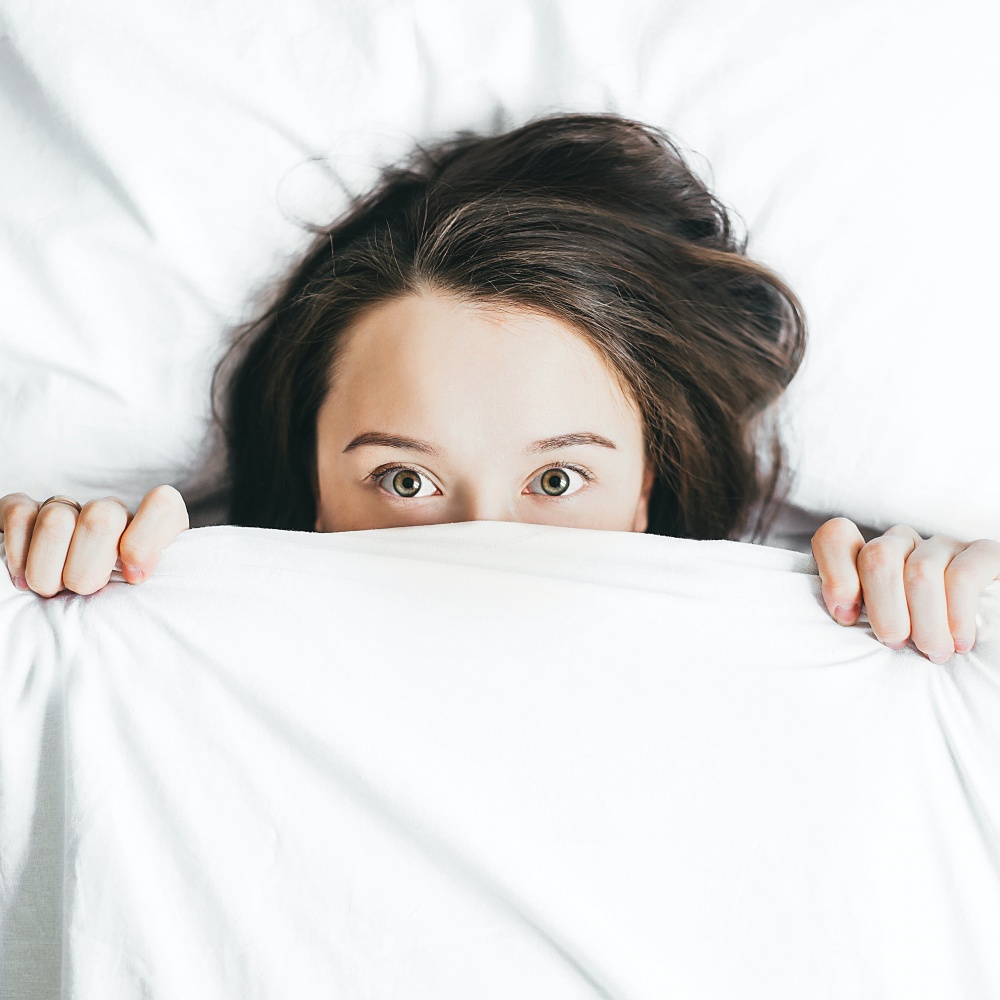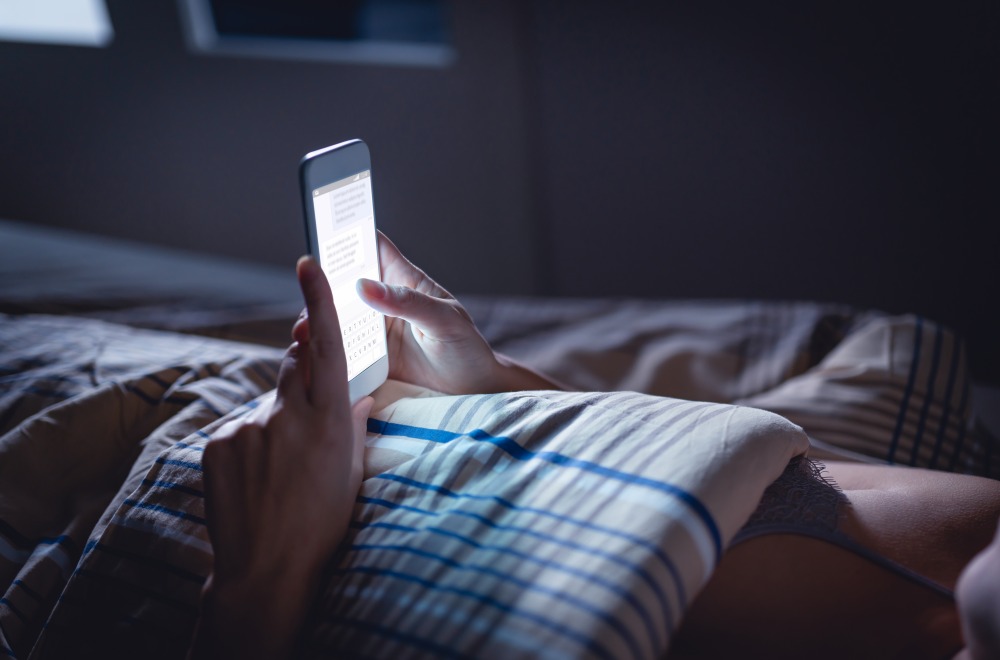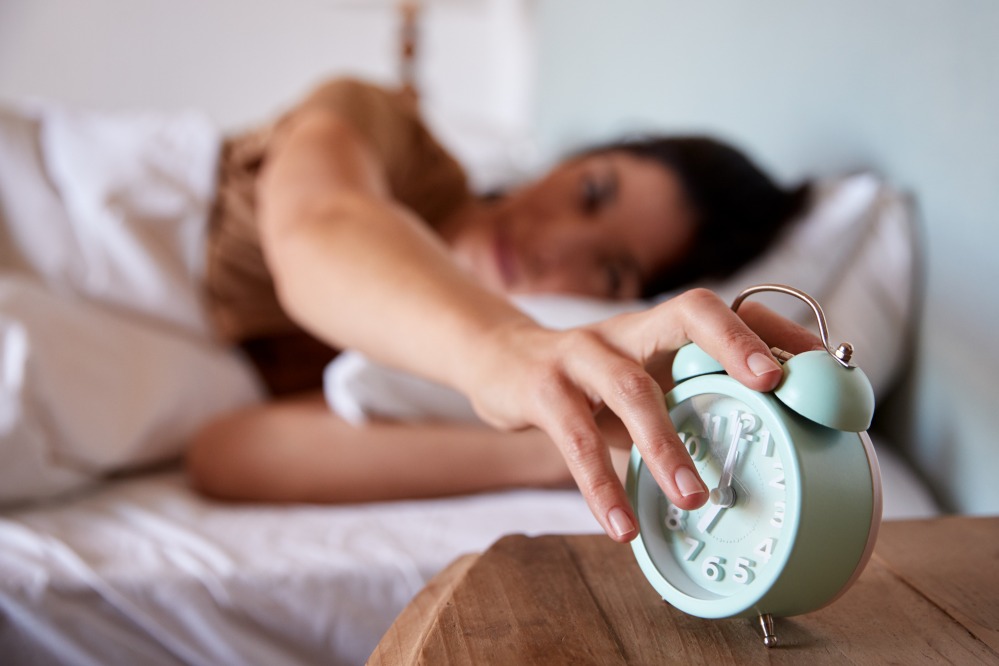Sleep Tight

How to get a good night's sleep as the clocks go back

We all know that our health and wellbeing relies on a good night’s sleep. Sleep is now one of the most researched aspects of 21st century living, and that research has shown that without it, sleep-deprived individuals can’t function as efficiently and, ultimately, a lack of sleep will adversely effect everything from your decision making to your immune system, your weight and can even increase the risk of cancer.
Ironically, our new-found interest in sleep does not mean we are getting better at it. Research shows that the average amount of sleep we now get has reduced from over eight hours to less than seven, and this is seen as the result of longer working hours, the increase in tech culture and increased levels of stress, but it’s also because we no longer listen to our natural circadian rhythm. Our ancestors rose with the sun and went to bed when it set (okay, they didn’t have the benefit of artificial light) because that was what their body clock urged them to do as our in-built circadian rhythm is regulated by light and dark. In response to light our bodies create serotonin to get us going, and we produce melatonin (the sleep hormone) when it starts to go dark. But we are now constantly surrounded by artificial light, including the blue light from our devices which means our own body clocks are completely out of sync – which is why so many adults say sleep is one of their major concerns when it comes to their health.
Once the clocks go back, the mornings may be a little darker for longer but evenings draw in sooner, and our internal clocks may suffer from further disruption. Here are our top five tips to develop a beneficial sleep pattern this winter.

1. Ditch the device
We are all guilty of an evening scroll through social media as we wind down, but it may not be the best way to relax at the end of the working day. ‘Electronic back-lit devices like mobile phones, tablets, readers, and computers emit short-wavelength enriched light, also known as blue light which has been shown to reduce or delay the natural production of melatonin in the evening and decrease feelings of sleepiness,’ says The Sleep Foundation. ‘Blue light can also reduce the amount of time you spend in slow-wave and rapid-eye movement (REM) sleep, two stages of the sleep cycle that are vital for cognitive functioning.’ The pandemic also presented even more complications when it comes to our screen-time habits and the rise of WFH has its perks, but it lacks the rigid routine we may have been used to when venturing out to the office. It leaves room for extended hours of screen-time, which keeps our mind occupied in the build-up to bedtime, rather than helping it wind down. So try and log off a little earlier in the evening to avoid disrupted sleep.
Constantly consulting a sleep app can lead to unnecessary anxiety and most phone apps can’t identify your real sleep patterns. ‘The quest for a perfect night of shut-eye should not be dictated by a device, and your perception of a good night’s sleep should be measured by how you feel in the morning, not by what your app might tell you,’ says Dr Meadows, clinical director of The Sleep School in London. ‘An app which is making assumptions based on movement does not identify your different levels of sleep. Too many of us, it appears, feel we are failing when our app tells us we are not achieving the right amount of sleep. This sense of failure increases stress surrounding sleep, and the sooner we recognise that it’s the app that is failing us in terms of accurately identifying any issues, not our sleep, the better.’

3. Get to know your sleep type
It’s important to know your sleep type in order to develop a beneficial routine – and bedtime routines are certainly not one size fits all. Dr Nick Hales has worked with elite athletes and sports teams to help their performance through improved sleep, and recognises how important it is to understand your own genetic disposition and circadian rhythm. There are natural AMers who wake naturally early, love the morning but go to bed relatively early, whilst PMers get up later, often needing an alarm to get them going, might nap in the daytime, will stay up later, and like catching up on lie-ins at the weekend. According to Dr Hales. AMers should organise meetings and exercise in the morning when they are more alert, should try and get more daylight in the afternoons to give them a boost as energy levels drop, and think about investing in a daytime lamp for their desk to help. PMers could invest in a dawn-wake stimulator and aim to increase their daylight exposure in the mornings to get them going faster, and arrange meetings and schedule sports for later in the day when their performance is naturally better.
Everyone can benefit from better pre and post-sleep routines. ‘Your pre-sleep routine should begin 90 minutes before your sleep time and should contain some simple activities that are going to get you ready for sleep,’ Dr Hales advises. ‘For example, you can write down anything important that happened during your day or plan the following day. You should also avoid blue light and make your room slightly colder (16–18C) than the rest of your house if possible, so you are moving into a cooler environment. Always keep your pre-sleep routine the same – this gets you into a routine that lets your body know it is time for sleep.’

5. Take time to get some sunlight
As our days get shorter, it’s important to expose ourselves to some daylight. Dr Hales goes on to recommend a post-sleep routine. This should last for 90 minutes from when you wake and will set you up for the day. ‘During this time, make sure you are exposed to as much daylight as possible and take time to eat breakfast, and do some gentle exercises and tasks around the house before work or daily activities.’ We also recommend a mid-morning or lunchtime walk, to help you get some much-needed sunlight exposure and aid your body clock.







